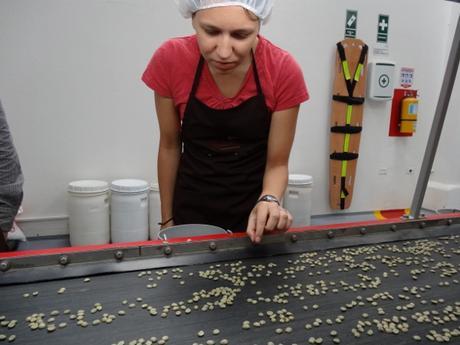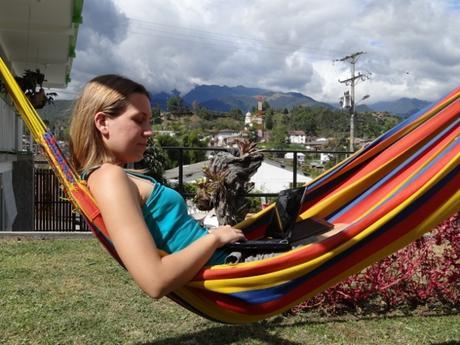When it comes to long-term travel, there is no arguing that we are die hard advocates. We've done it, twice even, and do everything in our power to encourage you to take off and travel for a few months or a few years at some point in your life.
One question that comes up a lot is a matter of not where to go or how to do it, but when long-term travel makes the most sense. Although the answer may be obvious to most as being as soon as possible, those who are in college or other training programs outside of the work force have some obstacles to face when determining what time is best.
In this two-part series we want to play a little devil's advocate and give you reasons for why college students shouldn't work before traveling and also why you may consider working for a few years before traveling.
So why should you work for a few years after college before traveling? The following are our four favorite reasons.
You Can Have a Few Nice "Pre-Trip" Vacations

If there was one thing Angie and I appreciated the most during our two years working and saving for our 15-month trip, it would be that we went on some nice vacations while planning it. From a long weekend trip in Vegas to celebrate a job offer, our rather luxurious honeymoon in Spain, to other weekend trips nearby, we made sure that our planning time was not devoid of travel.
I know what you're thinking, "If you go on vacations when saving for a long-term trip, you'll have less money for the trip itself!" This is true, but at the same time we think that forgoing travel altogether while saving for the big one is not the best decision.
First, if you don't travel while saving and planning, you're going to be miserable. Second, your long-term trip is going to likely be a downgrade in comfort, no matter how slight, so having a few trips with some luxury beforehand will be welcomed. Finally, there is the strategy aspect of it as you can use that time to explore parts of the world you may not be able to on your trip.
The last point may be the most important as no matter the itinerary you take, you will have some limitations either by logistics or money. For us, we chose our honeymoon in Spain entirely for the fact that we could cut two weeks out of our 90-day free Schengen visa for our big trip. By not hitting Spain on our 15-month trip, we were able to add two weeks in other great EU countries like Slovenia and Austria.
It may have cost us more in the long run, but our vacations while saving kept us sane, and our long-term itinerary was amazing no matter what.
Travel Becomes More Inspiring and Rewarding

As time goes on, I can safely say that through my experiences I learn more about myself, my likes, and my dislikes. This stems not only from the hobbies I pursue in my free time, but also my life while working.
Taking off to travel after graduating was amazing, but I can say that my second long-term trip was more rewarding after working for a few years. This time was very important to me as traveling after working gave me a better understanding what I wanted out of life, my career, and other important factors that most people have no idea about after they graduate.
If I didn't take off to travel after working for a few years, I may still be lost at what I want to do and would still be spinning my wheels thinking about it.
That didn't happen to quite the same extent in my first trip.It May Be Easier to Get a Job When You Get Home

In today's job market, experience is one key metric that sets you apart from other applicants looking for a job. Don't have any experience after you come home from your trip? Well, depending on your field and location preferences you may find yourself waiting that much longer for an opportunity to come up, which in turn would require you to spend more money from your coming home fund.
Since I've taken long-term trips both after graduate school (five months of travel and six years of school) and after getting experience (two years of work and 15-months of travel), I can say first hand that no one cared that I traveled.
But when comparing the two job seeking experiences, I had a significant number of call backs purely because of my job experience when looking after my second trip.
If you are planning to work in an ultra-competitive field with many candidates, a few years of experience may be all the difference between getting a job a month after you return home versus six months later (or more).
You Will Have More Money to Spend

Finally, we end on a more practical note: money.
I don't know about you, but I've hardly seen any college student graduate with an appreciable savings to their name. In fact, I can tell you right now that my savings accounts were roughly $6,000 after undergrad, $20,000 after graduate school, and $75,000 after working for two years (with Angie's graduate school stipend contributing to the last one). That allowed me to have five weeks in Europe solo, five months in Asia solo with Angie visiting at the end, and fifteen months around the world as a couple (while also having a nice returning home fund within each figure).
How did I make that happen? I worked throughout undergrad as an engineering intern, I had a modest stipend in graduate school for full-time work (as did Angie), and full-time engineering salaries on the whole are nothing to complain about.
Regardless of the dollar amount you can save yourself, those figures do show a very interesting trend in that, if done right, you can save far more money when you work. For those who have an insatiable wanderlust and want to see it all, there is nothing wrong with working just a bit longer to make it happen the way you want it to.
When it comes to waiting just a bit more to experience more of the world, I don't regret it one bit.
Okay, okay, I know what you're thinking. "That sounds great, but I want to travel right after I graduate!" We've got you covered. Head over to our alternative post "4 Reasons Why You Shouldn't Work Before Traveling Long-Term" to see the alternative side of the argument! Have you traveled long-term after working for a few years? Comment below to join the conversation and let us know what you thought of the decision - both good and bad!
